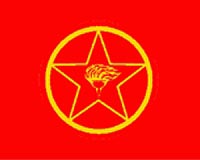| . |  |
. |
Islamabad (AFP) Dec 18, 2009 A Supreme Court ruling quashing a corruption amnesty protecting politicians has thrown nuclear-armed Pakistan into turmoil as the nation's allies want it to focus on battling militants, analysts say. Late Thursday, the defence minister was barred from leaving the country, the first fallout from a court decision striking down a 2007 law protecting people including President Asif Ali Zardari and reviving old graft cases. The travel ban sparked Pakistan's ambassador in Washington to deny a coup looming in a nation that only emerged from a long spell of military rule last year and has been battered by political turmoil and surging Islamist violence. Although analysts said whispers of a coup were completely unfounded, the havoc created by the ruling will unnerve Islamabad's Western backers, who have put Pakistan at the heart of the global fight against Al-Qaeda. "It undermines the reputation of the political elite... and uncertainty at this stage causes concern at the international level," said Hasan Askari, a visiting professor at Johns Hopkins University. "The international community's major concern is how far the internal developments and political wrangling between the government and opposition would affect Pakistan's capacity to address terrorism and related issues." Pakistan launched multiple offensives against Taliban and other militants in the northwest this year, trying to quell an insurgency that has killed more than 2,700 people since the rebellion intensified in July 2007. But US President Barack Obama's administration has been heaping pressure on Pakistan to also go after groups such as the Haqqani Network, the Afghan Taliban and Al-Qaeda militants who target foreign troops in Afghanistan. They have carved out sanctuaries in the lawless and rugged northwest tribal belt -- branded the most dangerous place in the world by Washington -- where they train and regroup before crossing the porous border to Afghanistan. Political columnist Shafqat Mahmood said that so far, there was little sign that Pakistan's war on the militants was suffering. "The security apparatus, which is the military, is fairly autonomous so any kind of political back and forth and court cases will occupy the political class but it won't affect the security situation," he said. But retired general and analyst Talat Masood said that there would be repercussions if the implicated politicians were determined to hold onto their portfolios and engage in lengthy court battles. "That will result in an uncertainty as to how the government will eventually shape and during this transitional period there would be difficulties as far as governance and security issues are concerned," he told AFP. "Logistics, financial allocations, the running of the country, the ownership of the war, the morale, attending to those people who are displaced and wounded -- all that has a very direct bearing on the economy, on everything." Askari said there were also positive aspects to the ruling, as it showed Pakistan had an independent judiciary willing to tackle high-level corruption. The amnesty -- called the National Reconciliation Ordinance -- was passed in October 2007 by then-president Pervez Musharraf, who was under pressure to hold elections and end about eight years of military rule. It quashed charges against a number of politicians including Zardari and the current interior and defence ministers to allow them to stand for office. A swift way out of the crisis would be for the implicated ministers to resign or a cabinet reshuffle take place, Masood said. For the moment, Zardari remains protected from old graft cases because his position gives him immunity from prosecution but the opposition are calling for his resignation and his eligibility for the presidency could also be challenged in court. Such legal cases could drag on for months but at the moment, columnist Mahmood said, Zardari seemed determined to "fight to the bitter end".
Share This Article With Planet Earth
Related Links News From Across The Stans
 Turkish army issues fresh warning over smear drive
Turkish army issues fresh warning over smear driveAnkara (AFP) Dec 17, 2009 Turkey's chief of staff Thursday lashed out at a "psychological campaign" to smear the army and warned of a "confrontation" over claims it was seeking to discredit and even oust the ruling party. His remarks followed suggestions that a deadly attack on soldiers last week might have been orchestrated to undermine the government. "Some circles have been carrying out a (...) psychological ... read more |
|
| The content herein, unless otherwise known to be public domain, are Copyright 1995-2009 - SpaceDaily. AFP and UPI Wire Stories are copyright Agence France-Presse and United Press International. ESA Portal Reports are copyright European Space Agency. All NASA sourced material is public domain. Additional copyrights may apply in whole or part to other bona fide parties. Advertising does not imply endorsement,agreement or approval of any opinions, statements or information provided by SpaceDaily on any Web page published or hosted by SpaceDaily. Privacy Statement |